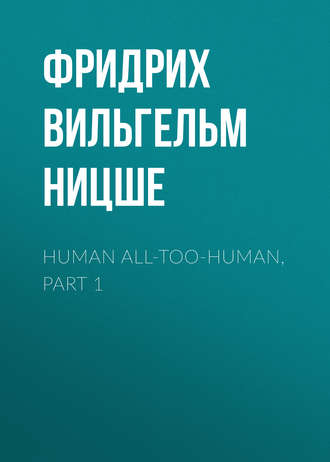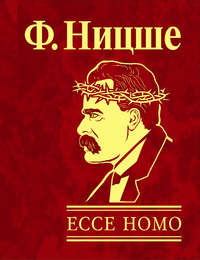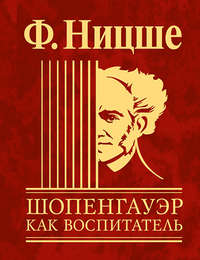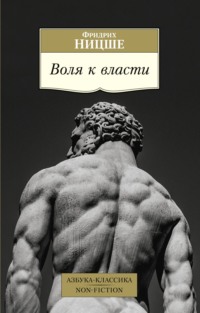 полная версия
полная версияHuman All-Too-Human, Part 1
The Voice of History. – In general, history appears to teach the following about the production of genius: it ill-treats and torments mankind – calls to the passions of envy, hatred, and rivalry – drives them to desperation, people against people, throughout whole centuries! Then, perhaps, like a stray spark from the terrible energy thereby aroused, there flames up suddenly the light of genius; the will, like a horse maddened by the rider's spur, thereupon breaks out and leaps over into another domain. He who could attain to a comprehension of the production of genius, and desires to carry out practically the manner in which Nature usually goes to work, would have to be just as evil and regardless as Nature itself. But perhaps we have not heard rightly.
234The Value of the Middle of the Road. – It is possible that the production of genius is reserved to a limited period of mankind's history. For we must not expect from the future everything that very defined conditions were able to produce; for instance, not the astounding effects of religious feeling. This has had its day, and much that is very? good can never grow again, because it could grow out of that alone. There will never again be a horizon of life and culture that is bounded by religion. Perhaps even the type of the saint is only possible with that certain narrowness of intellect, which apparently has completely disappeared. And thus the greatest height of intelligence has perhaps been reserved for a single age; it appeared – and appears, for we are still in that age – when an extraordinary, long-accumulated energy of will concentrates itself, as an exceptional case, upon intellectual aims. That height will no longer exist when this wildness and energy cease to be cultivated. Mankind probably approaches nearer to its actual aim in the middle of its road, in the middle time of its existence than at the end. It may be that powers with which, for instance, art is a condition, die out altogether; the pleasure in lying, in the undefined, the symbolical, in intoxication, in ecstasy might fall into disrepute. For certainly, when life is ordered in the perfect State, the present will provide no more motive for poetry, and it would only be those persons who had remained behind who would ask for poetical unreality. These, then, would assuredly look longingly backwards to the times of the imperfect State, of half-barbaric society, to our times.
235Genius and the Ideal State in Conflict. – The Socialists demand a comfortable life for the greatest possible number. If the lasting house of this life of comfort, the perfect State, had really been attained, then this life of comfort would have destroyed the ground out of which grow the great intellect and the mighty individual generally, 11 mean powerful energy. Were this State reached, mankind would have grown too weary to be still capable of producing genius. Must we not hence wish that life should retain its forcible character, and that wild forces and energies should continue, to be called forth afresh? But warm and sympathetic hearts desire precisely the removal of that wild and forcible character, and the warmest hearts we can imagine desire it the most passionately of all, whilst all the time its passion derived its fire, its warmth, its very existence precisely from that wild and forcible character; the warmest heart, therefore, desires the removal of its own foundation, the destruction of itself, – that is, it desires something illogical, it is not intelligent. The highest intelligence and the warmest heart cannot exist together in one person, and the wise man who passes judgment upon life looks beyond goodness and only regards it as something which is not without value in the general summing-up of life. The wise man must oppose those digressive wishes of unintelligent goodness, because he has an interest in the continuance of his type and in the eventual appearance of the highest intellect; at least, he will not advance the founding of the "perfect State," inasmuch as there is only room in it for wearied individuals. Christ, on the contrary, he whom we may consider to have had the warmest heart, advanced the process of making man stupid, placed himself on the side of the intellectually poor, and retarded the production of the greatest intellect, and this was consistent. His opposite, the man of perfect wisdom, – this may be safely prophesied – will just as necessarily hinder the production of a Christ. The State is a wise arrangement for the protection of one individual against another; if its ennobling is exaggerated the individual will at last be weakened by it, even effaced, – thus the original purpose of the State will be most completely frustrated.
236The Zones of Culture. – It may be figuratively said that the ages of culture correspond to the zones of the various climates, only that they lie one behind another and not beside each other like the geographical zones. In comparison with the temperate zone of culture, which it is our object to enter, the past, speaking generally, gives the impression of a tropical climate. Violent contrasts, sudden changes between day and night, heat and colour-splendour, the reverence of all that was sudden, mysterious, terrible, the rapidity with which storms broke: everywhere that lavish abundance of the provisions of nature; and opposed to this, in our culture, a clear but by no means bright sky, pure but fairly unchanging air, sharpness, even cold at times; thus the two zones are contrasts to each other. When we see how in that former zone the most raging passions are suppressed and broken down with mysterious force by metaphysical representations, we feel as if wild tigers were being crushed before our very eyes in the coils of mighty serpents; our mental climate lacks such episodes, our imagination is temperate, even in dreams there does not happen to us what former peoples saw waking. But should we not rejoice at this change, even granted that artists are essentially spoiled by the disappearance of the tropical culture and find us non-artists a little too timid? In so far artists are certainly right to deny "progress," for indeed it is doubtful whether the last three thousand years show an advance in the arts. In the same way, a metaphysical philosopher like Schopenhauer would have no cause to acknowledge progress with a regard to metaphysical philosophy and religion if he glanced back over the last four thousand years. For us, however, the existence even of the temperate zones of culture is progress.
237Renaissance and Reformation. – The Italian Renaissance contained within itself all the positive forces to which we owe modern culture. Such were the liberation of thought, the disregard of authorities, the triumph of education over the darkness of tradition, enthusiasm for science and the scientific past of mankind, the unfettering of the Individual, an ardour for truthfulness and a dislike of delusion and mere effect (which ardour blazed forth in an entire company of artistic characters, who with the greatest moral purity required from themselves perfection in their works, and nothing but perfection); yes, the Renaissance had positive forces, which have, as yet, never become so mighty again in our modern culture. It was the Golden Age of the last thousand years, in spite of all its blemishes and vices. On the other hand, the German Reformation stands out as an energetic protest of antiquated spirits, who were by no means tired of mediæval views of life, and who received the signs of its dissolution, the extraordinary flatness and alienation of the religious life, with deep dejection instead of with the rejoicing that would have been seemly. With their northern strength and stiff-neckedness they threw mankind back again, brought about the counter-reformation, that is, a Catholic Christianity of self-defence, with all the violences of a state of siege, and delayed for two or three centuries the complete awakening and mastery of the sciences; just as they probably made for ever impossible the complete inter-growth of the antique and the modern spirit. The great task of the Renaissance could not be brought to a termination, this was prevented by the protest of the contemporary backward German spirit (which, for its salvation, had had sufficient sense in the Middle Ages to cross the Alps again and again). It was the chance of an extraordinary constellation of politics that Luther was preserved, and that his protest; gained strength, for the Emperor protected him in order to employ him as a weapon against the Pope, and in the same way he was secretly favoured by the Pope in order to use the Protestant princes as a counter-weight against the Emperor. Without this curious counter-play of intentions, Luther would have been burnt like Huss, – and the morning sun of enlightenment would probably have risen somewhat earlier, and with a splendour more beauteous than we can now imagine.
238Justice Against the Becoming God. – When the entire history of culture unfolds itself to our gaze, as a confusion of evil and noble, of true and false ideas, and we feel almost seasick at the sight of these tumultuous waves, we then under stand what comfort resides in the conception of a becoming God. This Deity is unveiled ever more and more throughout the changes and fortunes of mankind; it is not all blind mechanism, a senseless and aimless confusion of forces. The deification of the process of being is a metaphysical outlook, seen as from a lighthouse overlooking the sea of history, in which a far-too historical generation of scholars found their comfort. This must not arouse anger, however erroneous the view may be. Only those who, like Schopenhauer, deny development also feel none of the misery of this historical wave, and therefore, because they know nothing of that becoming God and the need of His supposition, they should in justice withhold their scorn.
239The Fruits According to Their Seasons. – Every better future that is desired for mankind is necessarily in many respects also a worse future, for it is foolishness to suppose that a new, higher grade of humanity will combine in itself all the good points of former grades, and must produce, for instance, the highest form of art. Rather has every season its own advantages and charms, which exclude those of the other seasons. That which has grown out of religion and in its neighbourhood cannot grow again if this has been destroyed; at the most, straggling and belated off-shoots may lead to deception on that point, like the occasional outbreaks of remembrance of the old art, a condition that probably betrays the feeling of loss and deprivation, but which is no proof of the power from which a new art might be born.
240The Increasing Severity of the World. – The higher culture an individual attains, the less field there is left for mockery and scorn. Voltaire thanked Heaven from his heart for the invention of marriage and the Church, by which it had so well provided for our cheer. But he and his time, and before him the sixteenth century, had exhausted their ridicule on this theme; everything that is now made fun of on this theme is out of date, and above all too cheap to tempt a purchaser. Causes are now inquired after; ours is an age of seriousness. Who cares now to discern, laughingly, the difference between reality and pretentious sham, between that which man is and that which he wishes to represent; the feeling of this contrast has quite a different effect if we seek reasons. The more thoroughly any one understands life, the less he will mock, though finally, perhaps, he will mock at the "thoroughness of his understanding."
241The Genius of Culture. – If any one wished to imagine a genius of culture, what would it be like? It handles as its tools falsehood, force, and thoughtless selfishness so surely that I could only be called an evil, demoniacal being but its aims, which are occasionally transparent, are great and good. It is a centaur, half-beast, half-man, and, in addition, has angel's wings upon its head.
242The Miracle-education. – Interest in Education will acquire great strength only from the moment when belief in a God and His care is renounced, just as the art of healing you only flourish when the belief in miracle-cures ceased. So far, however, there is universal belief in the miracle-education; out of the greatest disorder and confusion of aims and unfavourableness of conditions, the most fertile and mighty men have been seen to grow; could this happen naturally? Soon these cases will be more closely looked into, more carefully examined; but miracles will never be discovered. In similar circumstances countless persons perish constantly; the few saved have, therefore, usually grown stronger, because they endured these bad conditions by virtue of an inexhaustible inborn strength, and this strength they had also exercised and increased by fighting against these circumstances; thus the miracle is explained. An education that no longer believes in miracles must pay attention to three things: first, how much energy is inherited? secondly, by what means can new energy be aroused? thirdly, how can the individual be adapted to so many and manifold claims of culture without being disquieted and destroying his personality, – in short, how can the individual be initiated into the counterpoint of private and public culture, how can he lead the melody and at the same time Accompany it?
243The Future of the Physician. – There is now no profession which would admit of such an enhancement as that of the physician; that is, after the spiritual physicians the so-called pastors, are no longer allowed to practise their conjuring tricks to public applause, and a cultured person gets out of their way. The highest mental development of a physician has not yet been reached, even if he understands the best and newest methods, is practised in them, and knows how to draw those rapid conclusions from effects to causes for which the diagnostics are celebrated; besides this, he must possess a gift of eloquence that adapts itself to every individual and draws his heart out of his body; a manliness, the sight of which alone drives away all despondency (the canker of all sick people), the tact and suppleness of a diplomatist in negotiations between such as have need of joy for their recovery and such as, for reasons of health, must (and can) give joy; the acuteness of a detective and an attorney to divine the secrets of a soul without betraying them, – in short, a good physician now has need of all the artifices and artistic privileges of every other professional class. Thus equipped, he is then ready to be a benefactor to the whole of society, by increasing good works, mental joys and fertility, by preventing evil thoughts, projects and villainies (the evil source of which is so often the belly), by the restoration of a mental and physical aristocracy (as a maker and hinderer of marriages), by judiciously checking all so-called soul-torments and pricks of conscience. Thus from a "medicine man" he becomes a saviour, and yet need work no miracle, neither is he obliged to let himself be crucified.
244In the Neighbourhood of Insanity. – The sum of sensations, knowledge and experiences, the whole burden of culture, therefore, has become so great that an overstraining of nerves and powers of thought is a common danger, indeed the cultivated classes of European countries are throughout neurotic, and almost every one of their great families is on the verge of insanity in one of their branches. True, health is now sought in every possible way; but in the main a diminution of that tension of feeling, of that oppressive burden of culture, is needful, which, even though it might be bought at a heavy sacrifice, would at least give us room for the great hope of a new Renaissance. To Christianity, to the philosophers, poets, and musicians we owe an abundance of deeply emotional sensations; in order that these may not get beyond our control we must invoke the spirit of science, which on the whole makes us somewhat colder and more sceptical, and in particular cools the faith in final and absolute truths; it is chiefly through Christianity that it has grown so wild.
245The Bell-founding of Culture. – Culture has been made like a bell, within a covering of coarser, commoner material, falsehood, violence, the boundless extension of every individual "I," of every separate people – this was the covering. Is it time to take it off? Has the liquid set, have the good and useful impulses, the habits of the nobler nature become so certain and so general that they no longer require to lean on metaphysics and the errors of religion, no longer have need of hardnesses and violence as powerful bonds between man and man, people and people? No sign from any God can any longer help us to answer this question; our own insight must decide. The earthly rule of man must be taken in hand by man himself, his "omniscience" must watch over the further fate of culture with a sharp eye.
246The Cyclopes of Culture. – Whoever has seen those furrowed basins which once contained glaciers, will hardly deem it possible that a time will come when the same spot will be a valley of woods and meadows and streams. It is the same in the history of mankind; the wildest forces break the way, destructively at first, but their activity was nevertheless necessary in order that later on a milder civilisation might build up its house These terrible energies – that which is called Evil – are the cyclopic architects and road-makers of humanity.
247The Circulation of Humanity. – It is possible that all humanity is only a phase of development of a certain species of animal of limited duration. Man may have grown out of the ape and will return to the ape again,12 without anybody taking an interest in the ending of this curious comedy. Just as with the decline of Roman civilisation and its most important cause, the spread of Christianity, there was a general uglification of man within the Roman Empire, so, through the eventual decline of general culture, there might result a far greater uglification and finally an animalising of man till he reached the ape. But just because we are able to face this prospect, we shall perhaps be able to avert such an end.
248The Consoling Speech of a Desperate Advance. – Our age gives the impression of an intermediate condition; the old ways of regarding the world, the old cultures still partially exist, the new are not yet sure and customary and hence are without decision and consistency. It appears as if everything would become chaotic, as if the old were being lost, the new worthless and ever becoming weaker. But this is what the soldier feels who is learning to march; for a time he is more uncertain and awkward, because his muscles are moved sometimes according to the old system and sometimes according to the new, and neither gains a' decisive victory. We waver, but it is necessary not to lose courage and give up what we have newly gained. Moreover, we cannot go back to the old, we have burnt our boats; there remains nothing but to be brave whatever happen. —March ahead, only get forward! Perhaps our behaviour looks like progress; but if not, then the words of Frederick the Great may also be applied to us, and indeed as a consolation: "Ah, mon cher Sulzer, vous ne connaissez pas assez cette race maudite, à laquelle nous appartenons."
249Suffering from Past Culture. – Whoever has solved the problem of culture suffers from a feeling similar to that of one who has inherited unjustly-gotten riches, or of a prince who reigns thanks to the violence of his ancestors. He thinks of their origin with grief and is often ashamed, often irritable. The whole sum of strength, joy, vigour, which he devotes to his possessions, is often balanced by a deep weariness, he cannot forget their origin. He looks despondingly at the future; he knows well that his successors will suffer from the past as he does.
250Manners. – Good manners disappear in proportion as the influence of a Court and an exclusive aristocracy lessens; this decrease can be plainly observed from decade to decade by those who have an eye for public behaviour, which grows visibly more vulgar. No one any longer knows how to court and flatter intelligently; hence arises the ludicrous fact that in cases where we must render actual homage (to a great statesman or artist, for instance), the words of deepest feeling, of simple, peasant-like honesty, have to be borrowed, owing to the embarrassment resulting from the lack of grace and wit. Thus the public ceremonious meeting of men appears ever more clumsy, but more full of feeling and honesty without really being so. But must there always be a decline in manners? It appears to me, rather, that manners take a deep curve and that we are approaching their lowest point. When society has become sure of its intentions and principles, so that they have a moulding effect (the manners we have learnt from former moulding conditions are now inherited and always more weakly learnt), there will then be company manners, gestures and social expressions, which must appear as necessary and simply natural because they are intentions and principles. The better division of time and work, the gymnastic exercise transformed into the accompaniment of all beautiful leisure, increased and severer meditation, which brings wisdom and suppleness even to the body, will bring all this in its train. Here, indeed, we might think with a smile of our scholars, and consider whether, as a matter of fact, they who wish to be regarded as the forerunners of that new culture are distinguished by their better manners? This is hardly the case; although their spirit may be willing enough their flesh is weak. The past of culture is still too powerful in their muscles, they still stand in a fettered position, and are half worldly priests and half dependent educators of the upper classes, and besides this they have been rendered crippled and lifeless by the pedantry of science and by antiquated, spiritless methods. In any case, therefore, they are physically, and often three-fourths mentally, still the courtiers of an old, even antiquated culture, and as such are themselves antiquated; the new spirit that occasionally inhabits these old dwellings often serves only to make them more uncertain and frightened. In them there dwell the ghosts of the past as well as the ghosts of the future; what wonder if they do not wear the best expression or show the most pleasing behaviour?
251The Future of Science. – To him who works and seeks in her, Science gives much pleasure, – to him who learns her facts, very little. But as all important truths of science must gradually become commonplace and everyday matters, even this small amount of pleasure ceases, just as we have long ceased to take pleasure in learning the admirable multiplication table. Now if Science goes on giving less pleasure in herself, and always takes more pleasure in throwing suspicion on the consolations of metaphysics, religion and art, that greatest of all sources of pleasure, to which mankind owes almost its whole humanity, becomes impoverished. Therefore a higher culture must give man a double brain, two brain-chambers, so to speak, one to feel science and the other to feel non-science, which can lie side by side, without confusion, divisible, exclusive; this is a necessity of health. In one part lies the source of strength, in the other lies the regulator; it must be heated with illusions, onesidednesses, passions; and the malicious and dangerous consequences of over-heating must be averted by the help of conscious Science. If this necessity of the higher culture is not satisfied, the further course of human development can almost certainly be foretold: the interest in what is true ceases as it guarantees less pleasure; illusion, error, and imagination reconquer step by step the ancient territory, because they are united to pleasure; the ruin of science: the relapse into barbarism is the next result; mankind must begin to weave its web afresh after having, like Penelope, destroyed it during the night. But who will assure us that it will always find the necessary strength for this?
252The Pleasure in Discernment. – Why is discernment, that essence of the searcher and the philosopher, connected with pleasure? Firstly, and above all, because thereby we become conscious of our strength, for the same reason that gymnastic exercises, even without spectators, are enjoyable. Secondly, because in the course of knowledge we surpass older ideas and their representatives, and become, or believe ourselves to be, conquerors. Thirdly, because even a very little new knowledge exalts us above every one, and makes us feel we are the only ones who know the subject aright. These are the three most important reasons of the pleasure, but there are many others, according to the nature of the discerner. A not inconsiderable index of such is given, where no one would look for it, in a passage of my parenetic work on Schopenhauer,13 with the arrangement of which every experienced servant of knowledge may be satisfied, even though he might wish to dispense with the ironical touch that seems to pervade those pages. For if it be true that for the making of a scholar "a number of very human impulses and desires must be thrown together," that the scholar is indeed a very noble but not a pure metal, and "consists of a confused blending of very different impulses and attractions," the same thing may be said equally of the making and nature of the artist, the philosopher and the moral genius – and whatever glorified great names there may be in that list. Everything human deserves ironical consideration with respect to its origin,– therefore irony is so superfluous in the world.









